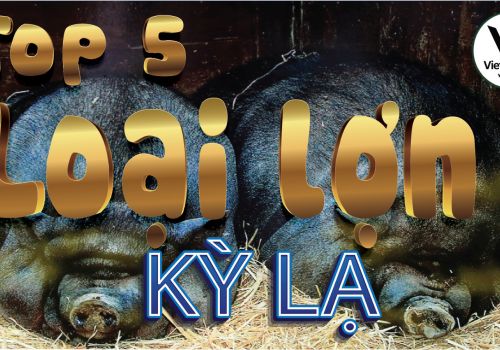아프리카 돼지 콜레라로 고통받는 고객에 대한 대출이자 면제 : 유효하지만 손실은 피
The State Bank of Vietnam (SBV) has recently requested credit institutions and SBV branches in provinces and cities to assist customers who are damaged by the impact of African swine flu. Accordingly, the State Bank requires credit institutions to restructure the repayment period, consider exemption of loan interest, continue to provide new loans to recover after the ending service, etc. for families affected by the epidemic. describe African pigs.
State Bank branches in provinces and cities are required to closely grasp the evolution of the locality, direct credit institutions to promptly report outstanding loans for pig breeding, outstanding loans due to cholera swine in Africa caused to actively take measures to handle and solve difficulties for pig farmers. At the same time, coordinate with other departments, agencies and agencies to timely advise the People's Committees of provinces and cities on solutions to handling risks and support to overcome difficulties for pig farmers under Decree No. 55 / 2015 / ND-CP and Decree No. 116/2018 / ND-CP of the Government.
The above direction of the SBV is in line with the orientation of promoting and developing priority areas of the economy, including the agricultural sector. This orientation is first concretized in solutions that require credit institutions to increase lending to priority areas. Because these priority areas have many risks, such as in the agricultural sector, there are natural disasters, epidemics, crop failures or product retention, so the SBV is required to have other solutions to reduce investment risks. into these areas.
In the case of pig raising, the State Bank has a solution to request credit institutions to restructure the term, reduce interest rates, continue to provide new loans to farmers suffering from cholera of African pigs to reduce damage and encourage people and businesses to continue to invest and develop livestock, not because of disease risks (and devaluation) but to withdraw from the industry.
However, coming here, a close question is posed, how are the interests of credit institutions resolved?
As mentioned, high risks in the livestock sector in particular, agriculture in general will often "falter" credit institutions, because they cannot risk throwing capital into areas where debt repayment capacity of people is borrowing depends too much on factors that are difficult or uncontrollable. So often when the SBV wants to encourage credit institutions to increase agricultural lending, the SBV is forced to show "carrots" to make credit institutions more active with the agricultural sector. Such remuneration from the SBV may be preferential credit packages for agriculture originating from the SBV, which credit institutions actually play as distribution channels or incentives in one form or another. including, for example, higher credit growth quotas.
It seems paradoxical that in a bad case like the outbreak of African swine flu, the SBV required credit institutions to consider debt rescheduling, debt restructuring, interest rate reduction, etc. Is the SBV seem to be "making it difficult" for credit institutions facing the possibility of not recovering debts due to epidemics?
In fact, in the direction of the State Bank, there are details of the State Bank branch in provinces and cities in coordination with functional agencies and localities to have solutions to handle risks and solve difficulties according to Decree 55/2015. / ND-CP and Decree 116/2018 / ND-CP of the Government.
Accordingly, the losses of credit institutions from debt freezing, debt reschedule, and interest rate reduction for borrowers who suffer from natural disasters and epidemics will be offset by the state budget. More specifically, Decree 116 stipulates: "The amount of interest that credit institutions cannot collect due to the debt freezing for customers is allocated from the local budget from the local budget. In case of local budget Difficulties, provincial People's Committees report to the Ministry of Finance to assume the prime responsibility and coordinate with the State Bank of Vietnam and the Ministry of Planning and Investment to report to the Prime Minister for consideration and decision to support from the reserve fund. Central books ".
Thus, if complying with the requirements and direction of the State Bank, credit institutions, when lending to priority areas, will, in principle, hardly suffer any significant losses despite risks. Lending is high. Because, at the end of the day, all damages and risks are taken care of by the central government and the local authorities.
The other thing worth mentioning here is to avoid losses from the policy of debt remission, debt rescheduling and interest reduction. When the cholera swine broke out, there were suggestions of subsidies by the state, compensating farmers whose pigs were destroyed by translating a certain percentage of the market price (eg, 80% of market price). school). If this solution is implemented, there will be many cases of households / livestock businesses benefiting twice, from direct subsidies to pigs to be destroyed, and from the credit institutions to write off, delineate, relax. debt, interest rate reduction, etc.
And it does not exclude the possibility of collusion and collusion between households / animal husbandry enterprises and bank officials and relevant agencies to make losses, increase the compensation from the budget.
With the above-mentioned risks and other losses, the SBV should have more guidance and coordination
관련 게시물

.jpg)
.jpg)




There is no comment